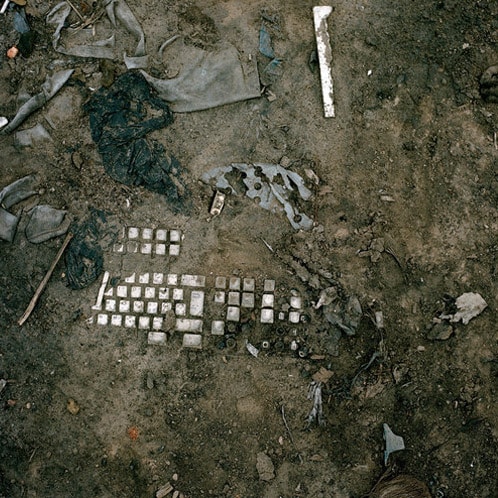A global graveyard for dead computers in Ghana
The graveyard of dead computers in pictures.
-
 In Agbogbloshie, a slum in Accra, the capital of Ghana, adults and children tear away at computers from abroad to get at the precious metals inside. Left, 18-year-old David Akore and other foragers. (NYT Photo)
In Agbogbloshie, a slum in Accra, the capital of Ghana, adults and children tear away at computers from abroad to get at the precious metals inside. Left, 18-year-old David Akore and other foragers. (NYT Photo) -
 20-year-old Yakubu Al Hasan with computer extractions. Copper is perhaps the most desirable, then brass, then aluminum, then zinc. (NYT Photo)
20-year-old Yakubu Al Hasan with computer extractions. Copper is perhaps the most desirable, then brass, then aluminum, then zinc. (NYT Photo) -
 Seen in this picture, 14-year-old Abdulai Yahaya.
Seen in this picture, 14-year-old Abdulai Yahaya.
Many boys are sent to mine the dumps by families from the north. (NYT Photo) -
 11-year-old Naasra Yeti, one of the scavengers in the Agbogbloshie Market. Women and girls often carry bowls of ice to put out fires. (NYT Photo)
11-year-old Naasra Yeti, one of the scavengers in the Agbogbloshie Market. Women and girls often carry bowls of ice to put out fires. (NYT Photo) -
 At the dump, the machines are dismantled and often burned to extract metals for resale.
At the dump, the machines are dismantled and often burned to extract metals for resale.
The equipment in this digital cemetery come mainly from Europe and the United States, sometimes as secondhand donations meant to reduce the "digital divide'' — the disparity in computer access between poor nations and rich. (NYT Photo) -
 In 2008, Greenpeace sampled the burned soil at Agbogbloshie and found high levels of lead, cadmium, antimony, PCBs and chlorinated dioxins. (NYT Photo)
In 2008, Greenpeace sampled the burned soil at Agbogbloshie and found high levels of lead, cadmium, antimony, PCBs and chlorinated dioxins. (NYT Photo) -
 A make-shift shack where scavengers rest. (NYT Photo)
A make-shift shack where scavengers rest. (NYT Photo) -
 Livestock among the ruins. (NYT Photo)
Livestock among the ruins. (NYT Photo) -
 Computer monitors sometimes double as chairs at the Agbogbloshie dump. (NYT Photo)
Computer monitors sometimes double as chairs at the Agbogbloshie dump. (NYT Photo) -
 A scavenger stops work for a meal. (NYT Photo)
A scavenger stops work for a meal. (NYT Photo) -
 Seen in this picture, 11-year-old Mami Al Hassan. (NYT Photo)
Seen in this picture, 11-year-old Mami Al Hassan. (NYT Photo) -
 Prices in Agbogbloshie are about four times below the international market price, but for the scavengers of the dump, the income is incentive enough. Left, 17-year-old Yaw Francis. (NYT Photo)
Prices in Agbogbloshie are about four times below the international market price, but for the scavengers of the dump, the income is incentive enough. Left, 17-year-old Yaw Francis. (NYT Photo) -
 17-year-old Ibrahim Sulley. (NYT Photo)
17-year-old Ibrahim Sulley. (NYT Photo) -
 The remnant of a shack, where recycled copper used to be weighed and sold to vendors. (NYT Photo)
The remnant of a shack, where recycled copper used to be weighed and sold to vendors. (NYT Photo) -
 A half-buried keyboard. (NYT Photo)
A half-buried keyboard. (NYT Photo) -
 The Basel Convention on the Control of Transboundary Movements of Hazardous Wastes and their Disposal, agreed to in 1989 and now adopted by a majority of nations, was meant to stop the dumping of toxic waste in poor countries. But rules get complicated when the waste arrives as a gift. (NYT Photo)
The Basel Convention on the Control of Transboundary Movements of Hazardous Wastes and their Disposal, agreed to in 1989 and now adopted by a majority of nations, was meant to stop the dumping of toxic waste in poor countries. But rules get complicated when the waste arrives as a gift. (NYT Photo)
Advertisement
Advertisement
Advertisement
Advertisement
